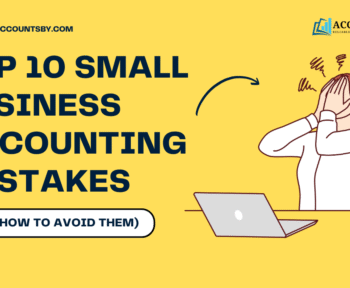As a freelancer, managing your finances can feel like another full-time job. From tracking income and expenses to sending invoices and preparing for taxes, the administrative burden can quickly overshadow your creative work. While paid accounting software offers robust features, many freelancers operate on a tight budget, making free tools an attractive option.
The good news? There’s a growing ecosystem of free influencer marketing tools that can significantly simplify your financial life. This article will highlight 7 essential free accounting tools every freelancer should consider, helping you stay organized, compliant, and financially savvy without breaking the bank.
Also Read: Maximize Your Savings: Essential Tax Deductions for Freelancers You Should Know About (FY 2025-26)
Why Free Accounting Tools Are a Freelancer’s Best Friend
For independent professionals, minimizing overheads is crucial. Free accounting tools aren’t just about saving money; they’re about empowering you to take control of your finances from day one. They provide:
- Cost Savings: Eliminate monthly subscription fees, allowing you to invest more in your business or personal savings.
- Essential Features: Cover core needs like invoicing, expense tracking, and basic reporting.
- Ease of Use: Many free tools are designed with user-friendly interfaces, making them accessible even if you’re not an accounting expert.
- Accessibility: Cloud-based options often allow you to manage your finances from anywhere, on any device.
Let’s dive into the top free accounting tools that can make a real difference for your freelance business.
Also Read: Top 10 Small Business Accounting Mistakes (and How to Avoid Them)
The Top 7 Free Accounting Tools for Freelancers
1. Spreadsheets (Google Sheets / Microsoft Excel Online)
The humble spreadsheet remains a powerful and versatile tool for basic accounting. Both Google Sheets and Microsoft Excel Online offer free, cloud-based versions.
Pros:
- Completely Free & Accessible: No cost, and accessible from any device with an internet connection.
- Highly Customizable: You can design your own templates for income tracking, expense logs, profit & loss, and more.
- Widely Understood: Most people have some familiarity with spreadsheets, making them easy to pick up.
- Good for Small Scale: Ideal for freelancers with a relatively low volume of transactions.
Cons:
- Manual Data Entry: Requires significant manual input, increasing the risk of errors.
- Limited Automation: Lacks features like bank reconciliation, automated reminders, or payment gateway integrations.
- Scalability Issues: Can become cumbersome and difficult to manage as your business grows and transactions increase.
- No Double-Entry Accounting: Not designed for full double-entry bookkeeping, which can be important for comprehensive financial tracking.
Did You Know?
Many websites offer free downloadable spreadsheet templates specifically designed for freelance income and expense tracking, which can give you a great head start!
2. Wave Accounting
Wave is often lauded as one of the most comprehensive free accounting software solutions, particularly popular among freelancers and small business owners globally.
Pros:
- Full Accounting Suite: Offers unlimited invoicing, expense tracking, income tracking, and basic financial reporting (Profit & Loss, Balance Sheet).
- Bank & Credit Card Connections: Can securely connect to your bank accounts to automatically import transactions.
- User-Friendly Interface: Designed to be intuitive, even for those without an accounting background.
- Scalability: Good for independent contractors and sole proprietors who might eventually need more features.
Cons:
- Limited Mobile App: While functional, the mobile app may not offer the full suite of features found on the web version.
- Payroll is Paid: If you hire employees, payroll is a paid service (though typically not an issue for individual freelancers).
- No Accounts Payable Tracking: You cannot track money you owe to others within the free version.
- Customer Support Can Be Basic: Free users typically rely on community forums and online help articles.
3. Zoho Invoice (Free Plan)
Zoho offers an extensive suite of business tools, and Zoho Invoice’s free plan is a robust option specifically for invoicing and client management.
Pros:
- Unlimited Invoices & Estimates: Create and send as many professional invoices and quotes as you need.
- Client Portal: Allows clients to view invoices, make payments, and communicate with you, improving client experience.
- Automated Payment Reminders: Helps you get paid on time without awkward manual follow-ups.
- Expense Recording: Basic expense tracking is included in the free plan.
- Multi-Currency Support: Useful if you work with international clients.
Cons:
- Revenue Cap: In India, the free plan is generally limited to businesses earning less than INR 50,000 annually. This can be a significant limitation for growing freelancers.
- Focus on Invoicing: While it records expenses, it’s not a full accounting solution like Wave.
- Limited Integrations (Free Plan): Advanced integrations might require a paid upgrade.
4. GnuCash
GnuCash is a free, open-source accounting software that offers double-entry bookkeeping, making it a powerful tool for those who want more control over their financial records.
Pros:
- Double-Entry Accounting: Ensures accuracy and balanced books, which is fundamental to proper accounting.
- Cross-Platform: Available for Windows, macOS, Linux, Android, and iOS.
- Robust Features: Includes checkbook-style register, scheduled transactions, and customizable reports (e.g., Balance Sheet, Profit & Loss).
- No Cost, Forever: Being open-source, there are no hidden fees or premium versions.
Cons:
- Steeper Learning Curve: Its double-entry system can be intimidating for beginners without accounting knowledge.
- Dated User Interface: The design can appear less modern and intuitive compared to cloud-based solutions.
- Local Storage: Data is typically stored locally on your computer, meaning no cloud access unless you set up your own syncing solution.
- Limited Support: Relies heavily on community forums for support.
5. PayPal Invoicing
If you already use PayPal for payments, their built-in invoicing feature is a convenient, straightforward option for sending professional invoices.
Pros:
- Familiar & Trusted: Most clients are familiar with PayPal, making payment collection easy.
- Simple to Use: Create and send invoices quickly within the PayPal interface.
- Integrated Payments: Clients can pay directly through the invoice, and funds go straight to your PayPal account.
- Mobile App: Send invoices on the go.
Cons:
- Primarily Invoicing: Lacks comprehensive accounting features like detailed expense tracking or financial reporting.
- Payment Processing Fees: While the invoicing tool is free, PayPal charges fees for receiving payments.
- Limited Customization: Invoice templates are basic compared to dedicated invoicing software.
6. Google Docs/Sheets for Proposals & Contracts
While not strictly an accounting tool, Google Docs and Sheets are invaluable for the pre-accounting stages: proposals, contracts, and basic record-keeping.
Pros:
- Free & Collaborative: Create professional proposals and contracts that can be easily shared and commented on.
- Cloud-Based: Access documents anywhere, anytime.
- Version History: Track changes and revert to previous versions.
- Templates Available: Use pre-designed templates or create your own for various client documents.
Cons:
- Not an Accounting System: Does not manage transactions, generate reports, or integrate with bank accounts.
- Manual Updates: Requires manual updating for project status or payment tracking.
7. Expensify (Limited Free Plan for Personal Use) / Basic Expense Tracker Apps
While many comprehensive expense trackers have paid tiers, some offer limited free functionalities that can be useful for freelancers. For example, apps like Moneyview or Wallet (in India) focus on personal finance but can be adapted for simple expense logging.
Pros:
- Receipt Scanning: Many apps offer basic OCR (Optical Character Recognition) to scan and digitize receipts.
- Categorization: Helps you categorize expenses for tax purposes.
- Mobile-Friendly: Track expenses on the go, making it easy to capture every small business cost.
Cons:
- Limited Features: Free versions are often restricted in terms of number of scans, advanced reporting, or bank integrations.
- Designed for Personal Use: Some popular free apps are more geared towards personal budgeting and may not have robust business categorization.
- No Invoicing/Full Accounting: These are purely for expense tracking.
Comparison Table: Free Accounting Tools for Freelancers
| Tool Category | Best For | Key Free Features | Pros | Cons |
| Spreadsheets | Very small scale, DIY enthusiasts | Custom tracking (Income, Expense, P&L), Data organization | Free, highly customizable, familiar | Manual, no automation, scalability issues |
| Wave Accounting | Growing freelancers needing full accounting | Unlimited Invoicing, Expense Tracking, Bank Sync, Reports | Comprehensive, user-friendly, scalable | Limited mobile app, no accounts payable (free) |
| Zoho Invoice | Freelancers focused on invoicing & client mgmt. | Unlimited Invoicing, Client Portal, Payment Reminders, Basic Expense Record | Professional invoices, good client features | Revenue cap (India), not full accounting |
| GnuCash | Detail-oriented freelancers wanting double-entry | Double-Entry Accounting, Custom Reports, Multi-Currency | Powerful, robust, completely free | Steep learning curve, dated UI, local storage |
| PayPal Invoicing | PayPal users, simple invoicing needs | Easy Invoice Creation, Integrated Payments | Familiar, quick to use, integrated payments | Limited features beyond invoicing, payment fees |
| Google Docs/Sheets | Proposals, contracts, simple record-keeping | Document creation, collaboration, cloud storage | Free, collaborative, version history | Not an accounting system |
| Expense Trackers | Mobile expense logging & receipt capture | Receipt scanning, basic categorization | On-the-go tracking, convenient | Limited features (free), often personal finance focused |
Next Read: Tax Deductions Every Freelancer Should Know About
Conclusion
Choosing the right free accounting tool depends heavily on your individual needs, the volume of your transactions, and your comfort level with different types of software. For many freelancers in India and across the globe, a combination of these tools (e.g., Wave for overall accounting and PayPal for specific payment needs) can provide a robust and cost-effective solution.
Start by assessing your current financial management challenges. Do you need better invoicing? More accurate expense tracking? Or simply a clear overview of your profits? Then, explore these free options to find the perfect fit to streamline your finances, allowing you to focus on what you do best: your freelance work.
References & Further Reading:
- Wave Accounting Official Website
- Zoho Invoice Official Website (India)
- GnuCash Official Website
- PayPal Invoicing Information
- Google Workspace (including Docs/Sheets)
- FreshBooks Blog on Free Expense Trackers (Note: While FreshBooks is a paid tool, their blog provides useful overviews of other free options.)
- Moneyview Blog on Expense Tracker Apps in India




